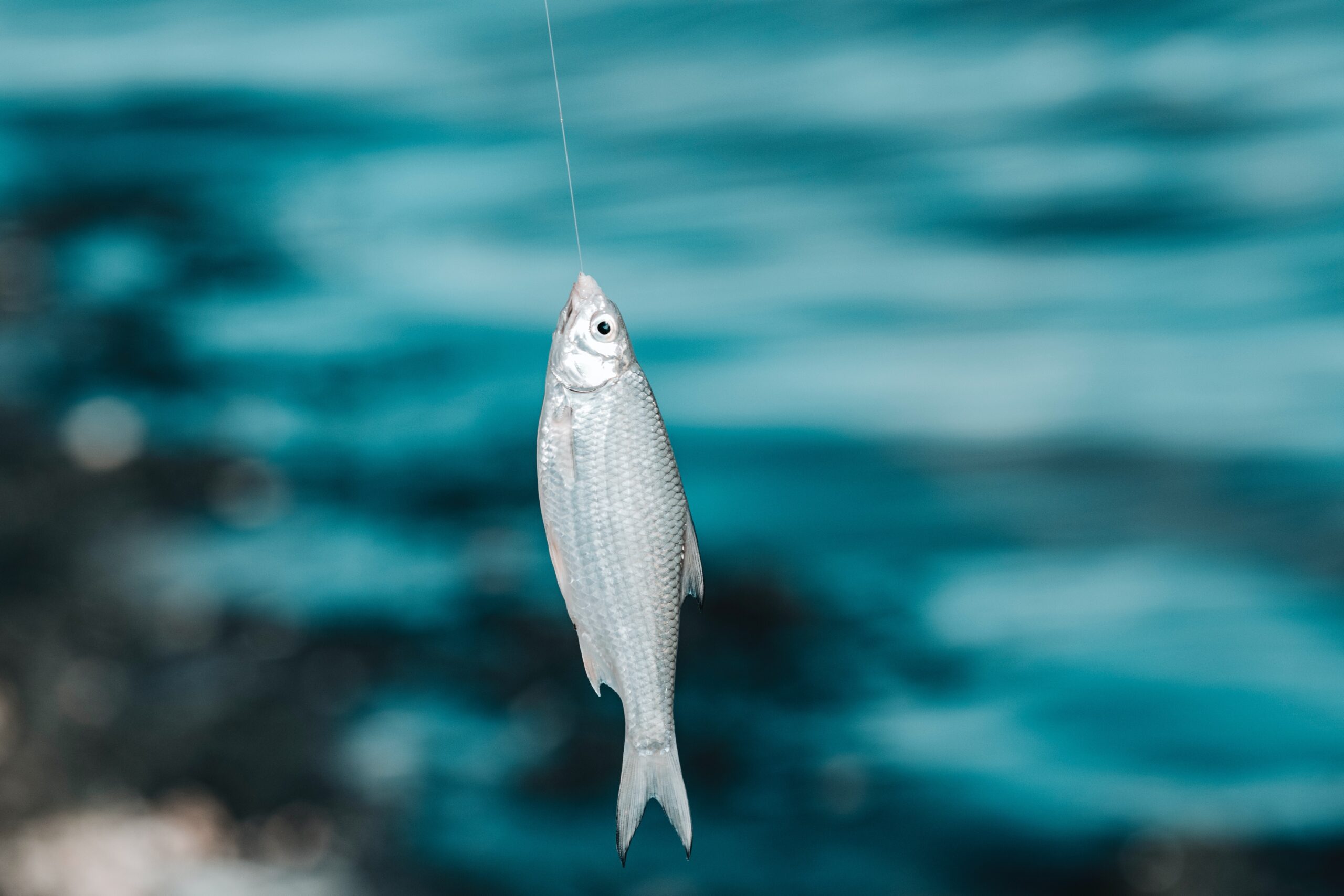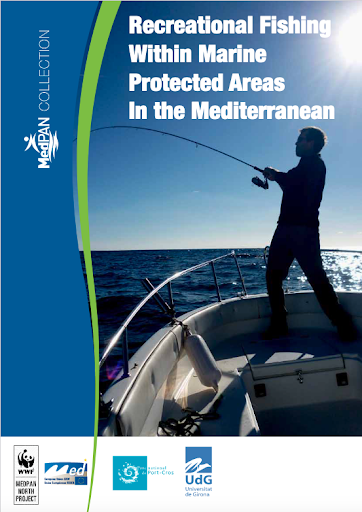 MANAGEMENT TOOL
MANAGEMENT TOOL
Recreational Fishing within Marine Protected Areas in the Mediterranean
Profile by ENI CBC MED ENSERESTO WHOM IS ADDRESSED?
Coastal wetlands managers, local authorities, Marine Protected Area (MPA) managers, public authorities, wetland managersTHEME
Fisheries, MPA management, TourismKEYWORDS
Fisheries, management, Marine Protected Area, MPA, MPA managemen, recreational fishing, small-scale fisheries, sustainable tourism, tourism
WHAT PROBLEM WOULD THIS SOLVE?
Recreational fishing is increasing rapidly, particularly across Mediterranean coastal areas where it represents more than 10% of the total production of all fishing. It entails a significant impact due not only to the extraction of natural resources, but also to pollution, waste generation and excessive numbers of people. This commands the need for further research and proactive management with regard to recreational fishing in Mediterranean MPAs.
Aim of the tool
The overall aim of the study is to provide an outline of the current situation of recreational fishing in Mediterranean MPAs and to propose measures for its sustainable management, in line with the conservation objectives of the MPAs.
Main objectives
The specific objectives of the study are to:
- Assess the socio-economic characteristics and biological impacts of recreational fishing on marine resources in MPAs, particularly on the most vulnerable species; and
- Propose recommendations for monitoring and management actions within MPAs for recreational fisheries.


WHAT IS NEEDED FOR IMPLEMENTATION?
Technological infrastructure
The use of a telephone and/or email to interview fishers is recommended in cases where low funding does not allow for aerial surveys to be performed. A computer and Internet connection are necessary to develop and regularly maintain a database of collected data.
Training
In relation to sampling recreational fisheries and fishers’ interviews, training is recommended for interviewers. This training should focus on sampling methods; the recognition of species, fishing techniques and baits; and other key factors such as how to formulate the questions to avoid bias in the responses.
Investment
Adequate funding is necessary to carry out regular monitoring using traditional methods. If this is not possible, some means should be available to evaluate the distribution of fishermen and fishing modes for example, using the observations of park rangers via some kind of log, in which the presence of recreational fishermen can be written down. Another method worth considering is the use of telephone or email interviews. A good balance between cost and reliability are Roving-access (or Access point) and Roving-roving, where census and interviews are usually conducted on foot or by boat.
Questionnaires are recommended as the most effective method for data collection on recreational fisheries in MPAs.

HOW TO USE IT?
Concept
The first part of this study presents the methodologies followed and the results of recreational fisheries monitoring in the Mediterranean. Data includes: fishing effort and yield; direct and indirect impacts on coastal and marine resources; the social profile and economic importance of recreational fishers; and the legal regulation of the sector.
The second part presents recommendations to the MedPAN network, managers and technical staff of the MPAs and European, national and regional authorities. Recommendations aimed to improve the monitoring, evaluation and management of impacts generated by recreational fishing, and provide new ideas for environmental education campaigns addressed to recreational fishermen. They combine a bottom-up approach (getting fishermen involved, co-management, etc.) with a top-down approach (European regulations, fishing permits, centralised data-bases, etc.).
Pilot areas
The assessment of recreational fisheries included data collected from a questionnaire distributed to managers of 31 Mediterranean MPAs in Spain, France, Italy, Slovenia, and Croatia, as well as from scientific literature and other documents.
Recommended timeline of implementation
Given the large variations that can be found in the results from one year to another, it is recommended to repeat studies or monitoring efforts year after year, or at least every certain number of years, in order to assess how the impact on fishing resources is developing. Simpler studies carried out annually could be combined with more extensive studies every three to five years, to produce a reliable series of surveys over time that would help to fill the gaps in our information regarding this activity.

WHAT CHALLENGES MAY ARISE?
The study thoroughly addresses the weaknesses and challenges involved in each step of implementation of the recommended measures. This includes, for example, the need to combine different methodologies for data collection to avoid the drawbacks of single methods, the positive and negative aspects of catch and release, and challenges related to the involvement of fishers in management and educational and awareness raising activities.

WHAT ARE THE EXPECTED RESULTS?
Quantitative results
By applying the recommendations included in this study, it is expected that MPA managers will have a better overview of the status and pressures of recreational fisheries in their MPA, and will thus improve their management by minimising the adverse environmental impacts while at the same time raising the awareness and education of recreational fishers.
Key deliverables
Key deliverables are the knowledge and know-how for the monitoring and management of recreational fishing in MPAs.
Transfer potential
The list of recommendations is directed at the MedPAN network as a whole, managers of MPAs and their technical staff and European, national and regional authorities that are responsible for the evaluation and management of recreational fishing. run, maintain and promote the activity. Underwater trails generate market and/or non-market income and benefits to the local population, tourists, professionals and institutional stakeholders.
KEY INFORMATION
- Some studies estimated the presence of 21.3 million fishermen in 22 European countries, a total expenditure on recreational fishing exceeding €25 billion and a total catch of commercial fishing worth about €20 billion.
- Generally, across Mediterranean MPAs, an average of 30% of all species caught by recreational fishing are vulnerable species. The species most often caught by both boat and shore fishermen belong to the Sparidae and Serranidae families.

For further information
The MedPAN North project was a transnational European project with the general aim of improving management effectiveness of Marine Protected Areas in the Northern Mediterranean. It was conducted under the stewardship of the MedPAN network and was coordinated by WWF-France. It involved 12 partners from 6 European countries bordering the Mediterranean : Spain, France, Greece, Italy, Malta and Slovenia. The project was co-funded by the European Regional Development Fund through the Med Programme, with a budget of €2.38 million. The project ran between July 2010 and June 2013.
Contact: medpan@medpan.org
Citation:
Font T., Lloret J., Piante C. 2012. Recreational fishing within Marine Protected Areas in the Mediterranean. MedPAN North Project. WWF-France. 168 pages.
Links of interest:
Recreational fishing within Marine Protected Areas in the Mediterranean
Partners:
- ACCOBAMS – Agreement on the Conservation of Cetaceans in the
- Black Sea Mediterranean Sea and Contigous Atlantic Area
- ACG – Association de la Continuité des Générations
- AGIR Association
- APAL – Coastal Protection and Development Agency
- Blue World Institute of Marine Research and Conservation
- Cetacean Studies Center
- Columbares association
- Conservatoire du littoral – International Unit
- DMAD – Marine Mammals Research Association
- Eco-ocean
- Enalia Physis Environmental Research Centre
- Environment and Resources Authority (ERA)
- FEDERPARCHI – Italian Federation of Natural Parks and Reserves
French Biodiversity Office - Fundacion Biodiversidad
- General Fisheries Commission for the Mediterranean (GFCM)
- General Secretariat of Fisheries – Ministry of Agriculture, Fisheries and Food
- Grouper Study Group
- INCA – Institute for Nature Conservation in Albania
- IUCN – International Union for Conservation of Nature – Mediterranean Center for Cooperation
- Interdisciplinary Study Center Gaiola in charge of the Gaiola Underwater Park
- MEDCEM – Mediterranean Center for Environmental Monitoring
- Marevivo
- Marine Explorers Society – 20000 leagues
- Marine Life Conservation Society
- Mediterranean Conservation Society (akdeniz koruma dernegi)
- Mediterranean Small Islands Initiative
- Medwet
- Miraceti
- Morigenos – Slovenian Marine Mammals Society
- Planète Mer
- RODPAL – Network of NGOs in the National Park of Al Hoceima
- Royal Albanian Foundation
- SAD – Underwater Research Society
- SPA/RAC – Specially Protected Areas Regional Activity Centre
- Septentrion Environnement
- Sharklab ADRIA – Centre for marine and freshwater biology
- Society for the Protection of Nature in Lebanon
- Sunce – Association for Nature, Environment and Sustainable Development
- TUDAV – Turkish Marine Research Foundation
- Tour du Valat
- WWF Greece
- WWF Mediterranean Programme Office
- “DelTA” association
- “Le Dauphin” association
- “Notre Grand Bleu” association
- “Posidonia Center for Development and Resources” NGO






